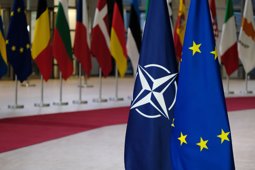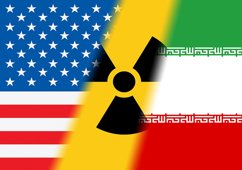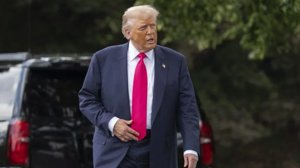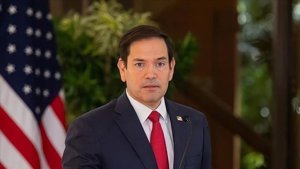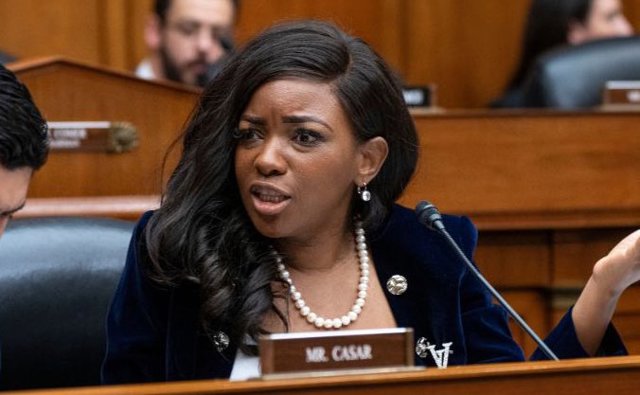
Crockett, Massie Challenge Trump Over Iran Strikes
Rep. Jasmine Crockett attacks Trump over Iran strikes, backs Massie’s war powers challenge as Trump’s PAC targets him.
Crockett Launches Scathing Critique of Trump’s Iran Strikes
Representative Jasmine Crockett, D-Texas, delivered a passionate rebuke of President Donald Trump over the weekend, condemning the administration’s decision to strike Iranian nuclear sites without explicit congressional approval. Crockett, known for her outspoken progressive views, addressed her followers on Instagram Live, accusing Trump of unilaterally declaring war and sidestepping both legal and constitutional restraints.
In her remarks, Crockett called Trump “the mofo that resides in the White House,” charging him with placing Americans in harm’s way and undermining the foundation of law and order. “We are living in this time in which there is someone who is occupying the White House who does not care about any rules, any norms, any laws, nor the Constitution,” she stated, warning that such disregard threatens civil society.
Crockett further challenged the administration’s narrative on immigration, suggesting Trump’s actions abroad, rather than domestic policy, are endangering Americans. She urged her supporters to reach out to their representatives, especially in Republican-held districts, emphasizing the need for bipartisan action to check presidential authority on military operations.
Bipartisan Calls for War Powers Oversight
In a rare instance of cross-party praise, Crockett singled out Republican Representative Thomas Massie of Kentucky for his efforts to rein in the president’s war powers. “There’s only one Republican that I know I can count on for sure doing the right thing. And that’s going to be Thomas Massie. The rest of them, it’s a little bit questionable,” Crockett remarked.
Massie, a long-time skeptic of foreign intervention, has led a bipartisan resolution with Democrat Ro Khanna to limit the president’s authority to use military force against Iran without congressional consent. Massie told media he hoped to force a vote on the measure, given the closely divided House and shifting sentiments on the use of military force.
The debate over war powers has exposed fractures not only between parties but within them. Some conservatives and progressive Democrats have aligned to challenge further U.S. entanglements abroad, while others support the administration’s show of strength against Iran.
Trump’s Campaign Targets Internal Dissent
The divide within Republican ranks grew starker as President Trump’s campaign launched a political action committee (PAC) aimed at unseating Massie in the next election cycle. The Kentucky PAC, led by key Trump strategists, marks the first time the Trump campaign apparatus has directly targeted an incumbent Republican for opposing the administration’s agenda. Trump signaled his intent to campaign against Massie, declaring on social media that “MAGA doesn’t want him, doesn’t know him, and doesn’t respect him.”
Massie has consistently voiced concerns about unchecked executive power, co-sponsoring the War Powers Resolution with nearly 50 Democrats to prevent unauthorized military action. He has also opposed Trump’s legislative priorities on government spending, earning a reputation as a fiscal and foreign policy hawk.
Meanwhile, the White House dismissed Crockett’s criticisms, with Press Secretary Karoline Leavitt highlighting the enduring support for Trump among Middle America and challenging Crockett to witness a Trump rally firsthand. A White House official added that Crockett’s alliance with Massie spoke volumes about both lawmakers’ positions on foreign policy and executive authority.
As the debate continues, the clash between presidential power and congressional oversight remains front and center. With Trump’s Iran strategy and campaign tactics under renewed scrutiny, the coming months promise intense political maneuvering and debate over the proper limits of executive action in foreign affairs.


